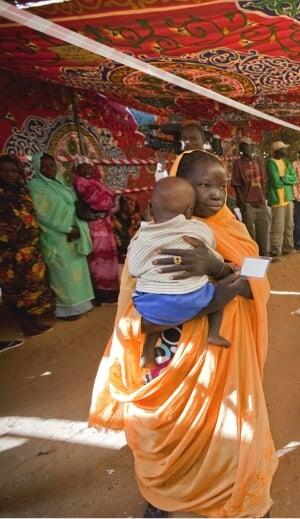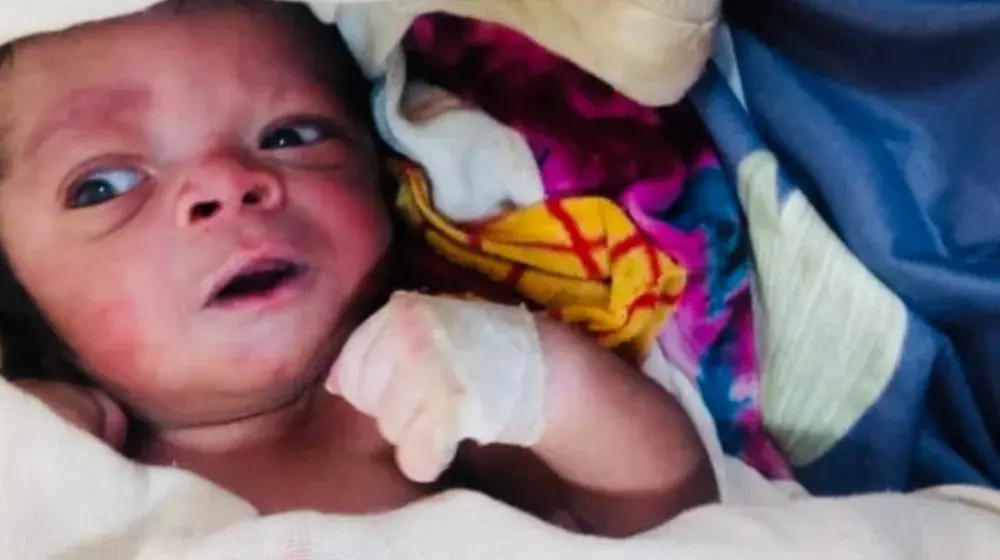JUBA, 19 July 2012 (IRIN) — South Sudan has the worst reported maternal mortality rate in the world.
"More women die in child birth, per capita, in South Sudan, than in any country in the world," says Caroline Delany, a health specialist with the Canadian International Development Agency (CIDA) in South Sudan, which is funding a raft of maternal health programmes.
A 2012 report entitled Women's Security in South Sudan: Threats in the Home by Geneva-based think-tank Small Arms Survey (SAS) says a national survey carried out in 2006 indicating a maternal death rate of 2,054 deaths per 100,000 live births may have been an underestimation.
"Many deaths are not reported, in part because 90 percent of women give birth away from formal medical facilities and without the help of professionally trained assistants," the report said.
Childbirth and pregnancy, rather than conflict, are the nation's biggest killers of girls and women.
"One in seven South Sudanese women will die in pregnancy or childbirth, often because of infections (from puerperal fever and retained placenta), haemorrhaging, or obstructed births, with a lack of access to healthcare facilities playing a large role in their deaths," SAS stated.
"When we talk about security in South Sudan there is a tendency to focus on issues such as guns and militia groups. But real human security means protection from anything that threatens health and wellbeing. In South Sudan there is nothing that poses greater threat to a woman's life than getting pregnant," says SAS researcher Lydia Stone.
Lack of midwives
"Midwives can prevent up to 90 per cent of maternal deaths where they are authorized to practice their competencies and play a full role during pregnancy, childbirth and after birth," UNFPA, United Nations Population Fund in South Sudan said in a May report on maternal mortality.
At the maternity ward in Juba Teaching Hospital, staff members say there are not enough (or the right kind of) drugs, and never enough trained staff.
Midwife Julia Amatoko is one of three registered midwives at the country's ramshackle and constantly overcrowded hospital in the capital. "We are just a few and a lot of mothers are coming. And beds are not enough for the mothers. We have just eight beds for the first stage of labour and for the post-natal mother," she said.
According to UNFPA, South Sudan has just eight registered midwives and 150 community midwives.
Amatoko said the lack of professional midwives working alongside traditional birth attendants (TBA) and community midwives causes needless deaths. "Those who are TBAs are not able to cope with the serious cases, like when the mothers have post-partum haemorrhage."
Giving birth even at the country's leading hospital is a lottery, especially at night. "I've been here for three months, and two mothers died in the night," she said, due to a lack of human resources.
"Midwives are the backbone for reduction of maternal mortality. But here, with all the midwives and birth attendants put together, there are only around 20," said consultant obstetrician and gynaecologist Mergani Abdalla.
"If you have professional midwives that can provide basic obstetric care - once South Sudan can deploy those, they can expect progress, but it will happen slowly," said midwifery specialist for UNFPA, Gillian Garnett.
UNFPA is looking forward to the graduation of around 200 midwives next year.
Read the full story from IRIN




